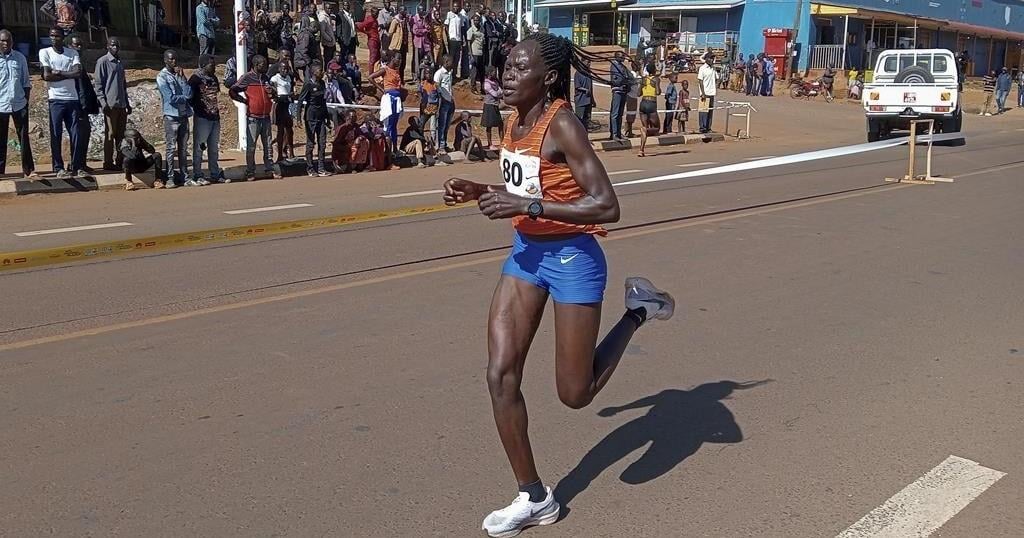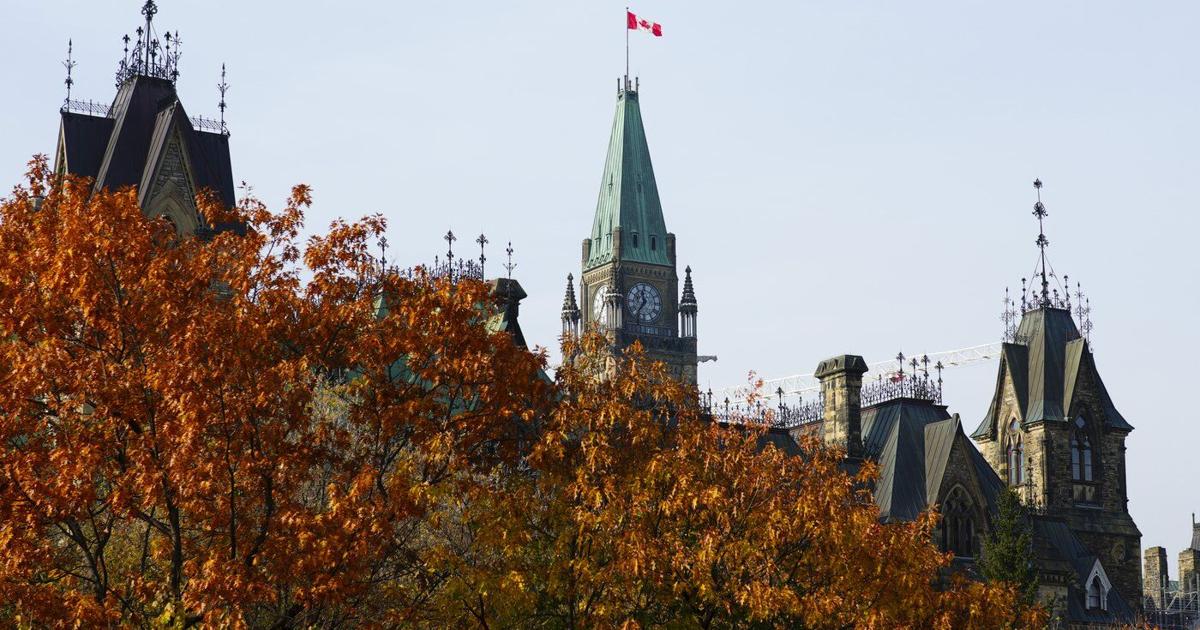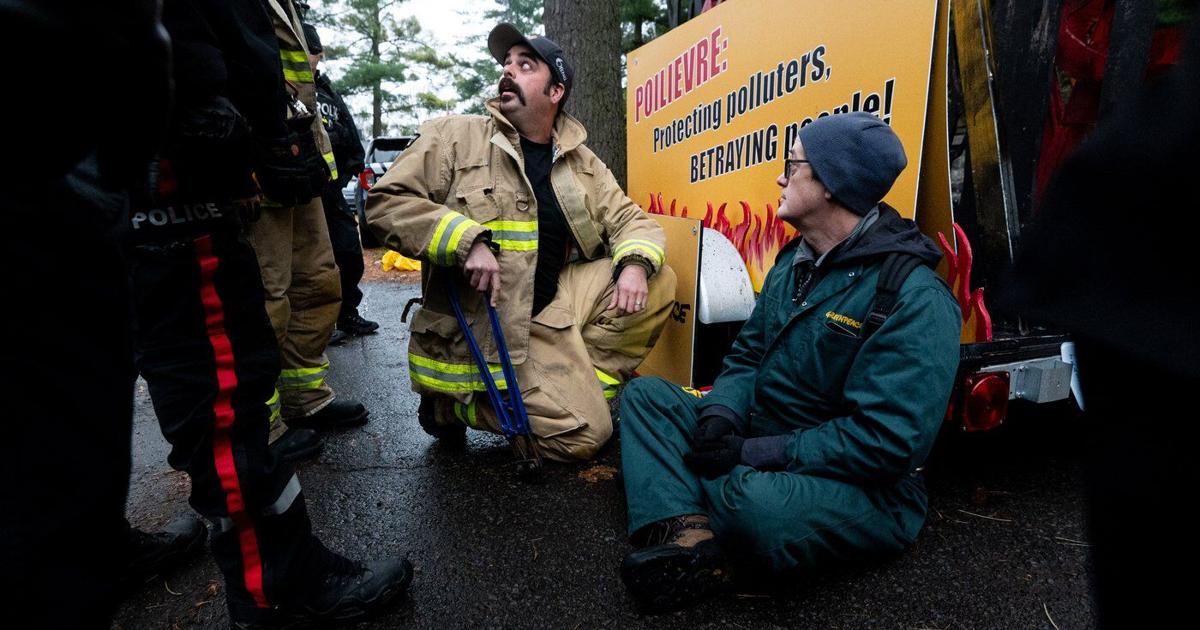NAIROBI, Kenya (AP) — Ugandan Olympic athlete Rebecca Cheptegei has died at a Kenyan hospital where she was being treated after 80% of her body was burned in an attack by her partner, a hospital official confirmed Thursday. She was 33.
Owen Menach, a spokesperson at Moi Teaching and Referral Hospital in Eldoret city, said the long-distance runner died early Thursday, the morning after her organs failed. She had been fully sedated on admission.
Cheptegei competed in the women’s marathon at the Paris Olympics less than a month before the attack. She finished in 44th place.
Her father, Joseph Cheptegei, told journalists at the hospital that he had lost a daughter who was “very supportive” and said he hoped to get justice.
“As it is now, the criminal who harmed my daughter is a murderer and I am yet to see what the security officials are doing,” the father said. “He is still free and might even flee.”
Trans Nzoia County Police Commander Jeremiah ole Kosiom said Monday that Cheptegei’s partner, Dickson Ndiema, bought a can of gasoline, poured it on her and set her ablaze during a disagreement Sunday. Ndiema was also burned and was being treated at the same hospital.
Menach said Ndiema was still in the intensive care unit with burns over 30% of his body but was “improving and stable.”
Cheptegei’s parents said their daughter bought land in Trans Nzoia to be near Kenya’s many athletic training centers. A report filed by the local chief said Cheptegei and Ndiema were heard fighting before the attack over the land where her house was built.
The Uganda Athletics Federation eulogized Cheptegei on the social platform X, writing, “We are deeply saddened to announce the passing of our athlete, Rebecca Cheptegei, early this morning who tragically fell victim to domestic violence. As a federation, we condemn such acts and call for justice. May her soul rest In Peace.”
Uganda Olympic Committee President Donald Rukare called the attack “a cowardly and senseless act that has led to the loss of a great athlete.”
Kenya’s Sports Minister Kipchumba Murkomen said that the government would ensure justice for the victim.
“This tragedy is a stark reminder that we must do more to combat gender-based violence in our society, which in recent years has reared its ugly head in elite sporting circles,” he wrote in a statement.
Uganda’s First Lady Janet Museveni called Cheptegei’s death due to domestic violence “deeply disturbing.”
International Olympic Committee president Thomas Bach said, “Rebecca’s participation in the Paris 2024 women’s marathon was a source of inspiration, pride and joy.”
The United Nations strongly condemned Cheptegei’s death.
U.N. spokesman Stéphane Dujarric recalled the words of Secretary-General António Guterres who said, “We still live in a male-dominated culture that leaves women vulnerable by denying them equality in dignity and rights.”
Every 11 minutes on average, a woman or girl is killed by an intimate partner or family member somewhere in the world, according to figures from UN Women, the agency promoting gender equality, and the U.N. Office on Drugs and Crime.
“We of course think that the true numbers are much higher,” Dujarric said.
He said the denial of women’s rights leaves societies less peaceful, economies less prosperous, and the world less just, “but a different world is possible.”
In 2023, Ugandan Olympic runner and steeplechaser Benjamin Kiplagat was found dead with stab wounds. In 2022, Kenyan-born Bahraini athlete Damaris Muthee was found dead and a postmortem report stated that she was strangled. In 2021, long-distance runner Agnes Tirop was stabbed to death at her home. Her husband, Ibrahim Rotich, was arrested and charged with murder, the case is ongoing.
Kenya’s high rates of violence against women have prompted marches by ordinary citizens in towns and cities this year.
Four in 10 women or an estimated 41% of dating or married Kenyan women have experienced physical or sexual violence perpetrated by their current or most recent partner, according to the Kenya Demographic and Health Survey 2022.
























